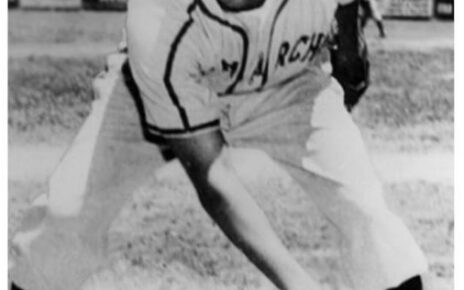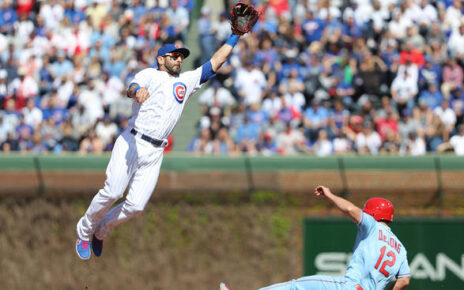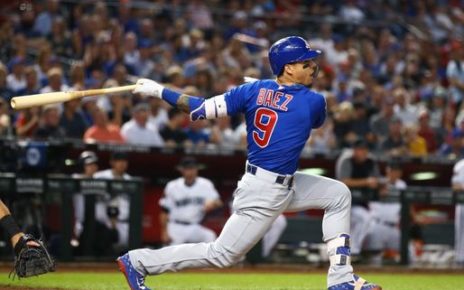Today concludes Major League Baseball’s annual First-Year Player Draft. MLB desperately wants this to be an event, similar to the drafts held in the National Basketball Association and National Football League. To that end, they schedule a bare minimum of games on the first day, when the biggest names are picked, and do their darndest to make fans think that their draft is a special event. Try as they may, I don’t quite ever see MLB’s amateur draft becoming an actual event. There are natural roadblocks in the way such as when the draft is held and the path a drafted player has to take to find his/her way to an MLB roster.
That’s not why I’m writing this column today, because frankly, I don’t particularly care about the draft and never really will, outside of one factor. The draft is bad, like really, really bad, and the fact that it exists is some owner bullshit that I can’t condone. There’s no reason for a draft to exist other than for MLB owners to pay players as little as possible and to deny said players the ability to fairly negotiate the best future for themselves. In the world of hard-hitting MLB draft analysis, this is about as close as I will ever come.
Before we continue down that road, the history of MLB’s draft is important. It wasn’t the first professional sports draft in America. That distinction belongs to the NFL, followed shortly by the NBA. At first, MLB wanted nothing to do with a draft. Various owners made arguments against a draft, and the majority of teams were content with the way that players entered the league throughout its history. Prior to the draft if a player wanted to enter the ranks of MLB they simply signed a contract with the team that made them the best offer, or the team they most wanted to play for, or the team that promised them three ice cream cones instead of two. The players had the majority of the power; they fielded offers from multiple teams and could choose to play for whichever team met their interests.
Of course, all good things must come to an end when money is involved (I’m not silly enough to believe that all was good before the draft, segregation and the reserve clause were not good). A certain number of teams began to cry foul over the pre-draft system. The richer teams from bigger markets were signing all the best players because they could afford to pay far more than the small market clubs. When these arguments were being made in the 1940s-50s there was some validity to them. MLB had not yet reached its current form, that of only the richest of the rich being able to own teams. Still, it ultimately should not be a players fault that owner B can’t pay him/her as much as Owner A. The owners knew this, but they also began to realize that if they found a way to curb first-year players from signing with whomever they wanted they could better control those players and line their respective coffers even more.
The stopgap measure of signing restrictions implemented in the late 1940s did not work. Think the bonus pool slots of the present day draft and you have the signing restrictions of the 1950s. Everyone and their mother may want to sign Ike Delock, and no signing restriction of $4,000 is about to stop the Ike frenzy. The easy solution is for a team to sign Ike for the required maximum of $4,000 and then pay him his actual signing bonus of $150,000 under the table. This is how teams operated until 1964, when after years of arguing and stalling the owners finally voted to institute a first-year player draft. The following year the draft took place and first-year players were taken by teams like cattle coming to slaughter.
For years the draft served its intended purpose, driving down the ability of players to earn money. Then the 1980s came along and players started signing for larger and larger amounts of money after being drafted. “Egads,” the owners screamed, “we can’t have the players actually using our draft to make themselves money.” Finally, in the early 2000s, the owners got their way and were able to institute restrictive signing slots, officially curbing the ability of players to fairly negotiate upon being drafted. The baseball world at large may think that Bobby Witt Jr. is a super talent who deserves all the monies, but the owners have made it where Witt can look forward to a restricted signing bonus for being drafted and then a few years of poverty level wages while he toils in Minor League Baseball before maybe getting a shot in MLB if he doesn’t get hurt or never pan out as expected.
MLB owners and the Office of the Commissioner have spent years carefully refining the draft until it is what they always wanted it to be, the ultimate form of player manipulation. The player draft strips away the rights of the incoming players. They lose the ability to argue for fair wages or to seek employment where they so choose. Just stop and think about this scenario for a second. You have finished school and are ready to enter the world as a Paramedic. Only, you can’t interview for the departments you want and the pay you deserve because you’ve been drafted and told you can only get a set amount of money for signing. Stodgy owners do this to first-year players every single year. They get to decide what is best for first-year players because of their manipulation and lack of caring for their person. The ability to take our skills and attempt to find work that best suits us where we want is something every American is afforded as a right, except if your skill leads you to an organization like MLB that forces you into a draft designed to curtail your ability to earn a living.
There are plenty of other issues with the draft (international players (except for Canada) are barred from the draft, but are then forced to sign restricted contracts that limit their earnings as well, being one of those issues), but at its core, the largest problem with the draft is that it exists. It’s not helping small market teams to compete because the idea of a small market team is a lie propagated by owners that don’t want to spend money. The draft is hurting players, driving away talented amateurs to other baseball leagues or other sports, and does absolutely nothing to enrich the game or the lives of those playing said game. MLB wants the draft to be an event that all of baseball and casual fans everywhere pay attention to and watch. I simply want the draft to go away and for first-year players to stop being treated like cattle. I’m doubtful either MLB or I will ever get what we truly want in this instance.
Lead photo courtesy of Shawn McFarland – Baseball America




